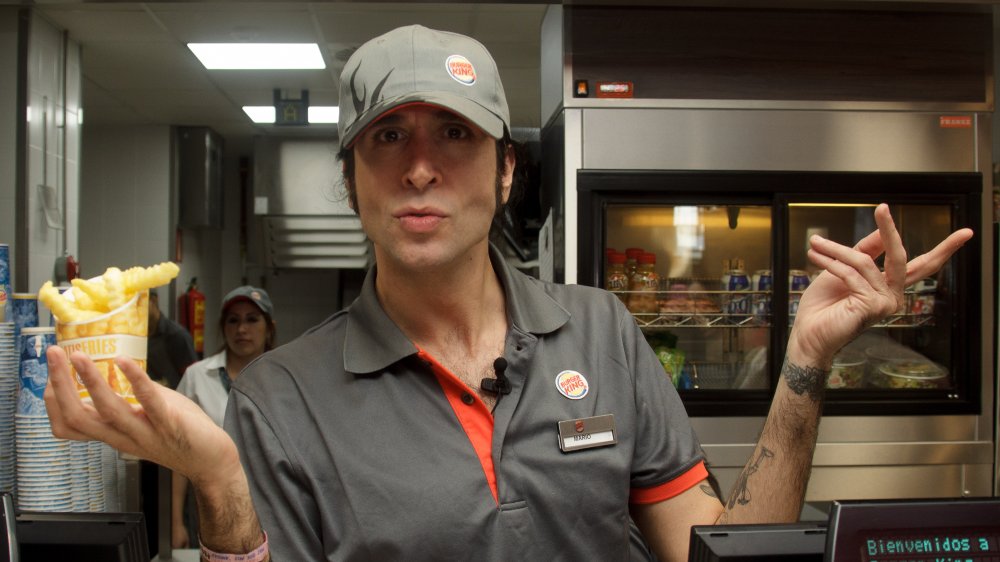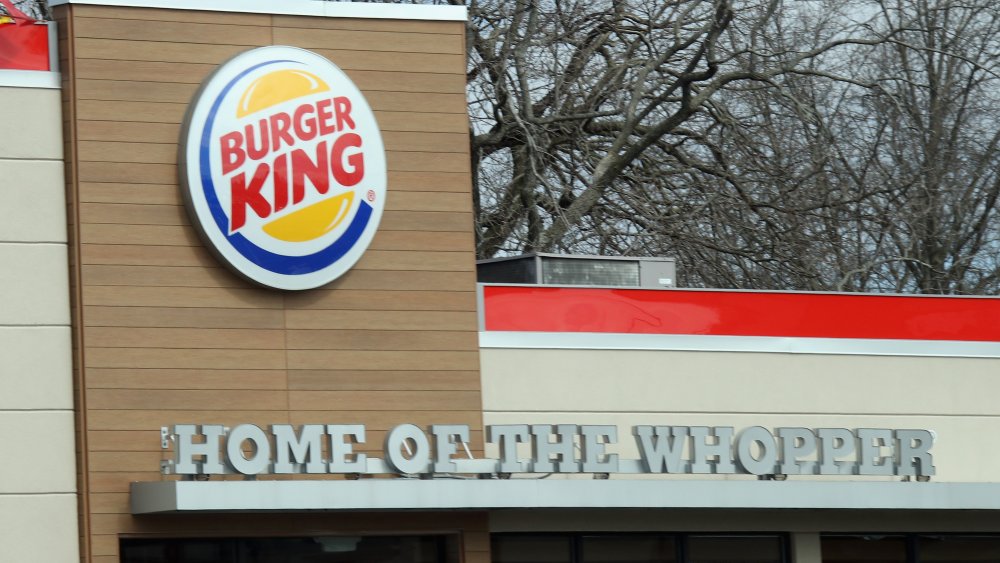The Real Reason Burger King's 'Healthy' Fries Flopped
The year 2013 was supposed to mark a special coronation for Burger King. After allegedly spending a decade engineering "guilt-free fries" that absorb less oil, the regal grease stain unveiled its "Satisfries," which supposedly boasted 40 percent less fat than average French fries (via Business Insider). To celebrate that monumental accomplishment, Burger King even pretended to crown itself "Fries King," per Time Magazine. The whole idea went about as swimmingly as a cement goldfish. Instead of looking like a starchy monarch, the company seemed more like a jester unwittingly clowning itself.
The Motley Fool observes that internet punsters pounced on the name "Satisfries," calling them the "saddest fries." The saddest part about it is that it was an improvement on the awkward mishmash potato-related feelings contained in the original name. Were people supposed to feel guilty when they didn't choose Satisfries? Were they really all that satisfying, and if so, why not replace all the fries with the healthier option instead of letting people eat something needlessly fatty? So many things went wrong with this idea, from the concept to the execution to unintentional self-satire. Let's do what customers didn't with the Satisfries and dig into the failure.
Utterly unsatis-frying
Burger King's grand scheme to sell Satisfries was comically flawed. Since when is any food whose name contains a variant the word "fried" healthy? And even if Satisfries weren't actually bad for you, why would people believe a company that calls itself the "Home of the Whopper?" As Merriam-Webster points out, the word 'whopper also describes "an extravagant or monstrous lie?" Yikes! We're sure their intentions were good!
Semantic mockery aside, the Motley Fool mentions that Burger King struggled to make its health claims seem credible. For starters, a small order of Satsfries clocked in at 270 calories while McDonald's regular small fries packed 230 calories. Granted, McDonald's offered a smaller package in the sense that it weighed less, but people don't bring physical scales to burger joints when weighing their options.
Plus, purchasing a small order of Satisfries cost 30 cents more than the regular regular-sized Burger King French fries. Lastly, Burger King attempted to fix what wasn't broken. It turns out that nobody was eager to eat a new and dubiously-improved version of something they were perfectly fine with — it's fast food, after all.

